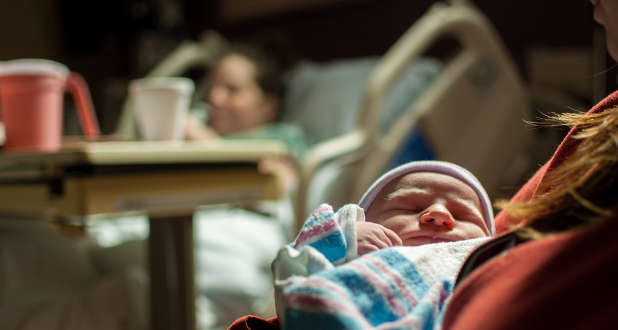[ad_1]

“Every human being has the inherent right to life. This right shall be protected by law.”
For over 50 years, these words have been enumerated in the International Covenant on Civil and Political Rights (ICCPR)—one of the international community’s commitments to protecting the life of every human being. But these words—and the protection they help provide—are currently under attack.
As we recently informed you, the U.N. Human Rights Committee is trying to rewrite the definition of the “right to life.” The U.N. Human Rights Council has a draft General Comment on Article 6 of the ICCPR, which contains concerning and problematic language that alters the current interpretation of Article 6’s protection of the right to life.
Each U.N. treaty has a series of “general comments” attached to it. “These cover a wide range of subjects, from the comprehensive interpretation of substantive provisions, such as the right to life or the right to adequate food, to general guidance …” However, before a draft General Comment is adopted by the Human Rights Committee, stakeholders, such as Member States and non-governmental organizations (NGOs), are invited to submit comments on the draft which express support or concerns, as well as suggested changes. So, we did just that. Through our European affiliate, the European Centre for Law and Justice (ECLJ), with consultative status at the U.N., we submitted comments (English | French) addressing the danger the current draft poses to the right to life.
As we informed you before, paragraph nine of current draft places restrictions on the rights of State parties to regulate abortion stating that “States parties must provide safe access to abortion,” and forbidding States from “introducing humiliating or unreasonably burdensome requirements on women seeking to undergo abortion.” Paragraph 10 is also concerning, as it provides contradictory interpretations regarding the duty of State parties where suicide and euthanasia are concerned: “States should take adequate measures, without violating their other Covenant obligations, to prevent suicides, especially among individuals in particularly vulnerable situations. At the same time, States’ parties [may allow] [should not prevent] medical professionals to provide medical treatment of the medical means in order to facilitate the termination of life …”
Our submission points out that the current language of paragraph nine allows Article 6 of the ICCPR to be interpreted in a way that requires States to broadly guarantee a woman a “right” to abortion. Furthermore, the current language of paragraph 10, far from providing a right to life, instead creates a “right to die” and an obligation on the part of State parties to assist in—rather than prevent—suicide. Both paragraphs nine and 10 interpret Article 6 in a way that is contrary to the original intent. Article 6 was written to protect life—not provide a “right” to kill or die.
In addressing these concerns, our submission suggests several changes to the current draft:
Regarding paragraph nine, the ECLJ invites the Committee to recognize the objective fact that the life of every human being starts at his/her conception and to remind the States parties of the commitment they have undertaken to prevent abortion. A possible wording could be similar to the one used in the provisions on death penalty or on suicide. By analogy, with the provision related to death penalty found in paragraph 54, the ECLJ makes the following proposal: “Abortion cannot be reconciled with full respect for the right to life, and its prevention is both desirable and necessary for the progressive development of human rights and enjoyment of the right to life”; or by analogy with the provision on suicide found in paragraph 10: “States’ parties should take appropriate measures, without violating their other Covenant obligations, to prevent resorting to abortion, especially among individuals in particularly vulnerable situations.” …
Regarding paragraph 10 on assisted suicide and euthanasia, the ECLJ asks the Committee to assert that assisted suicide and euthanasia “in the sense of the intentional killing by act or omission of a dependent human being for his or her alleged benefit, must always be prohibited”, according to the wording adopted by the Parliamentary Assembly of the Council of Europe.
While the Human Rights Committee has the final say in the draft General Comment that is ultimately adopted, our work in addressing concerns and firmly standing for a true right to life is extremely important. We believe that every human being does indeed have an inherent right to life—and we fight aggressively every day to ensure that right is not diminished or infringed upon.
For the original article, visit aclj.org. ![]()
Readers are Leaders! Subscribe now and get 3 magazines for the price of 1. Get Charisma, Ministry Today and SpiritLed Woman all for $24. YES – Sign me up!
3 Reasons Why you should read Life in the Spirit. 1) Get to know the Holy Spirit. 2) Learn to enter God’s presence 3) Hear God’s voice clearly! Click here to draw closer to God!
Related topics: Abortion | ACLJ | Caucus Issues | Charisma Caucus | Pro-Life
[ad_2]
Source link



